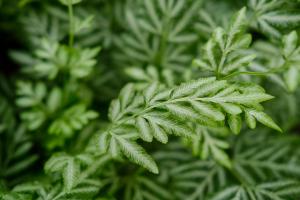Can You Use Pool Water to Water Plants?
If you're a pool owner, you might have wondered if you can use pool water to water your plants. The short answer is, it depends on a few factors. In this article, we'll explore the pros and cons of using pool water for plants and offer some tips for doing it safely and effectively.
Pros of Using Pool Water for Plants
One of the advantages of using pool water to irrigate your plants is that it's a free and abundant source of water. If you're on a tight budget or live in an area with water shortages, recycling pool water can be an excellent way to conserve resources.
In addition, pool water contains essential nutrients that can benefit your plants. Chlorine, for example, can help control harmful bacteria and algae that can damage plant roots. Trace amounts of minerals such as sodium, calcium, and magnesium can also be beneficial to your plants' growth.
Cons of Using Pool Water for Plants
On the downside, pool water can also pose some risks to your plants if not used properly. One of the biggest concerns is the high levels of chlorine and other chemicals that can be present in the water. Chlorine can be toxic to plants at certain concentrations, especially if they're young or sensitive.
Another issue to consider is the pH of the water. Pool water is often more alkaline than tap water, which can affect your plants' ability to absorb nutrients. If the pH is too high or too low, it can cause nutrient deficiencies, leaf burn, or even death of the plant.
Tips for Using Pool Water for Plants
If you decide to use pool water to irrigate your plants, there are some precautions to take to minimize the risks:
Test the water: Before using pool water for plants, test its chlorine levels and pH using a kit. Ideally, the chlorine should be below 5 ppm (parts per million), and the pH should be between 6.0 and 7.5.
Let the water sit: Allow the pool water to sit for at least 24 hours to let the chlorine dissipate. This will also give the water a chance to reach room temperature, which will be less shocking to the plants.
Use a filter: If possible, use a filter or a net to remove any debris or floating matter from the water. This will prevent clogging and blockage of the plant's roots.
Dilute the water: If the chlorine levels are too high, you can dilute the pool water with tap water to lower them. Aim for a ratio of 1:1 or 2:1 (pool water to tap water).
Apply properly: When watering your plants with pool water, make sure to apply it slowly and thoroughly to allow the soil to absorb it. Avoid splashing or spraying the water directly on the leaves or stems, as this can cause sunburn or damage.
In Conclusion
Using pool water to water plants can be a viable option if done correctly. By following the tips above and taking precautions, you can make sure that your plants receive enough water and nutrients without introducing harmful chemicals. However, if you're unsure or if your plants show signs of stress or damage, it's always best to consult a professional or switch to using tap water instead.

 how many times do yo...
how many times do yo... how many planted tre...
how many planted tre... how many pine trees ...
how many pine trees ... how many pecan trees...
how many pecan trees... how many plants comp...
how many plants comp... how many plants can ...
how many plants can ... how many plants and ...
how many plants and ... how many pepper plan...
how many pepper plan...
































